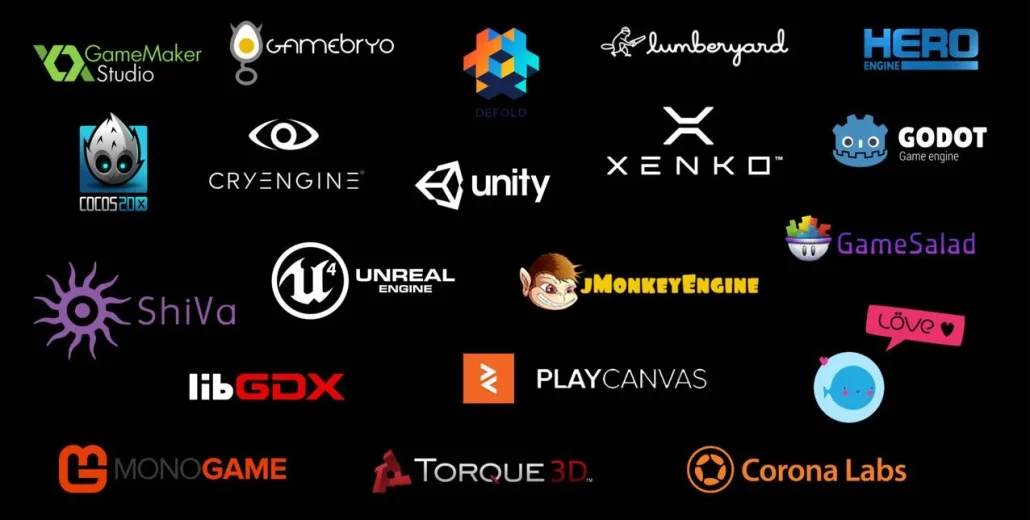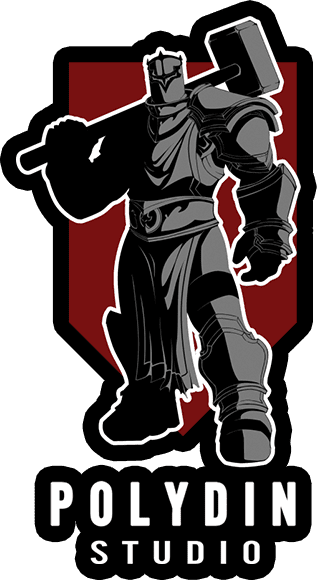Game engines are software frameworks that provide developers with a set of tools and features for creating video games. These engines allow developers to focus on game design and mechanics without worrying about the underlying technology. Game engines have become increasingly popular over the years as they simplify the game development process and make it more accessible to a broader range of creators.
We will explore the best game engines for game development in 2023, the components of a game engine, why game engines are essential, and the specifics of each engine on the list. Our aim is for you to have a better understanding of the different options available and what are the best game engines for your game development needs.
What is a Game Engine?
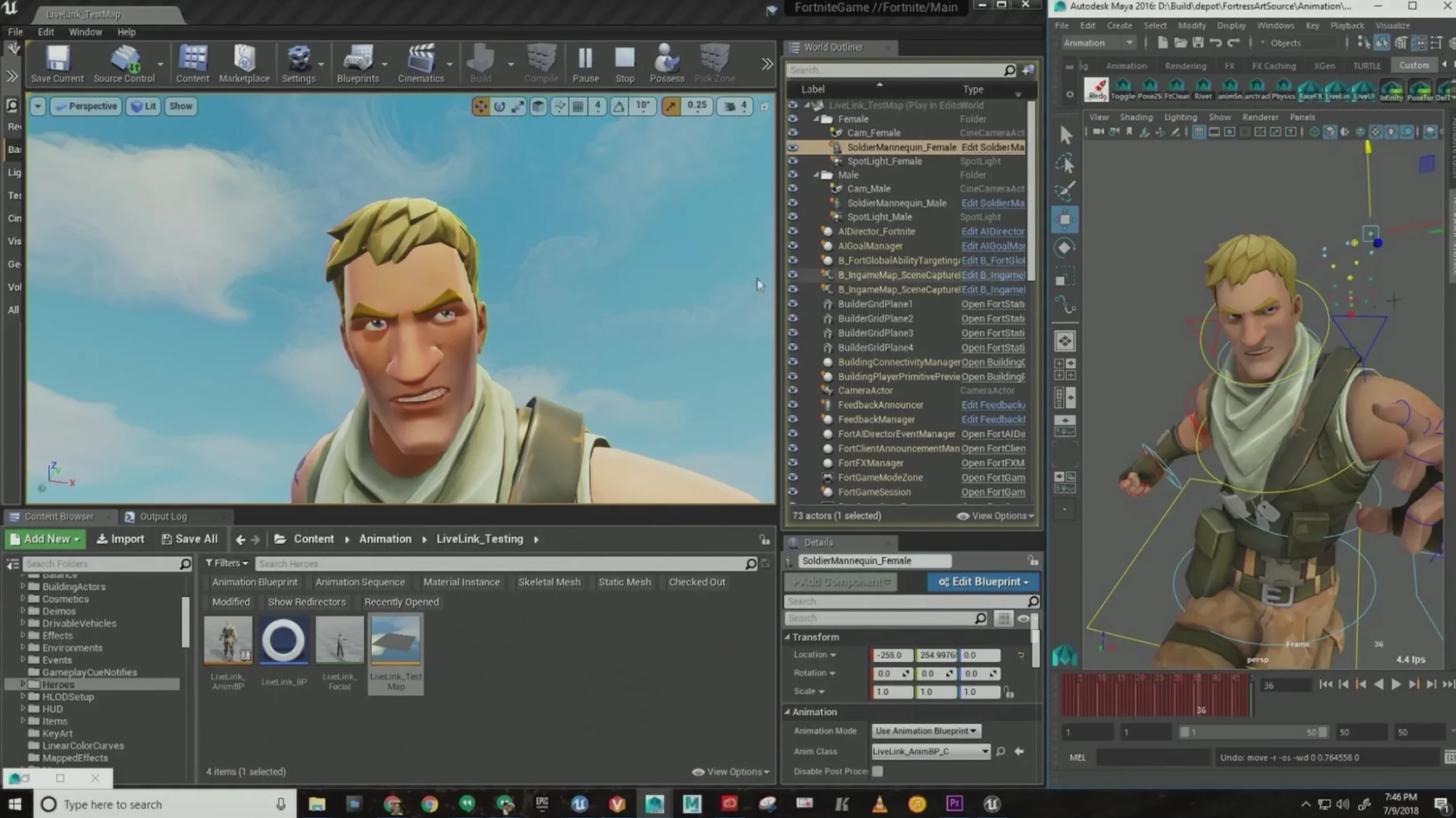

A game engine is a software framework that provides developers with a set of tools and features for creating video games. It is a combination of a physics engine, rendering engine, scripting, artificial intelligence, and other software modules that work together to create a game. These modules provide a common architecture and set of tools that allow developers to focus on game design, mechanics, and gameplay without having to worry about the underlying technology.
Game engines can range from simple 2D engines to complex 3D engines with advanced physics and graphics capabilities. They typically provide a set of tools for creating game assets, such as models, textures, and animations, and tools for scripting game logic and behavior.
Game engines have become increasingly popular over the years because they simplify the game development process and make it more accessible to a broader range of creators. They provide a standardized framework for game development, allowing developers to save time and focus on the creative aspects of game development.
The Components of a Game Engine
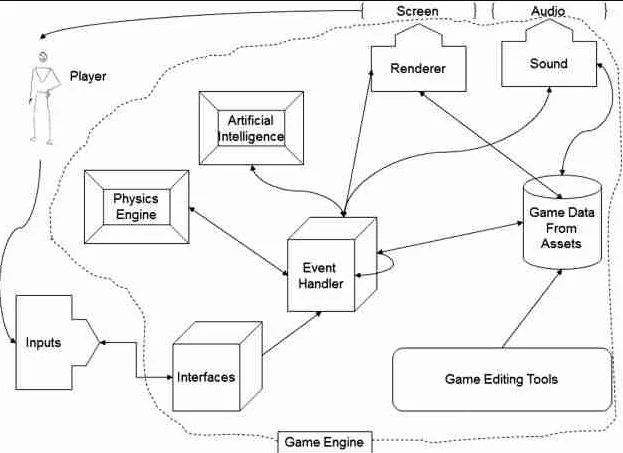

A game engine consists of various components that work together to provide developers with a complete set of tools for game development. Here are the main components of a typical game engine:
1. Rendering Engine
The rendering engine is responsible for creating the visuals of the game. It generates images of the game world and displays them on the screen. This component uses various techniques, such as shading, lighting, and post-processing effects, to create realistic graphics.
2. Physics Engine
The physics engine is responsible for simulating physical interactions in the game world. It calculates how objects move and interact with each other based on the laws of physics, such as gravity, friction, and collisions.
3. Audio Engine
The audio engine is responsible for handling sound effects, music, and voiceovers in the game. It generates sound effects based on the events that occur in the game and synchronizes them with the gameplay.
4. Scripting Engine
The scripting engine is responsible for providing a scripting language that developers can use to create game logic and behavior. It allows developers to write code that controls the game objects, AI, and other aspects of the game.
5. Artificial Intelligence
The AI component is responsible for creating intelligent behaviors for the game’s characters and objects. It uses algorithms to simulate human-like decision-making and learning, allowing the game to react dynamically to player actions.
6. Input Management
The input management component is responsible for handling user input, such as keyboard and mouse events, touch inputs, and gamepad inputs. It translates these inputs into game commands and sends them to the game logic.
7. Networking
The networking component is responsible for handling online multiplayer functionality, allowing players to connect and play together over the internet. It manages the transmission of data between players and synchronizes the game state across all devices.
These components work together to provide a complete set of tools for game development. The specific components and their functionalities can vary depending on the game engine used.
Why are Game Engines Important?


Game engines are essential tools for game developers, as they provide a framework for building and designing games. Game development would be a much more complicated and time-consuming process without game engines. Game engines offer developers a set of tools, libraries, and features that make it easier to create games. These tools typically include physics engines, audio engines, scripting systems, animation tools, and more.
One of the biggest advantages of using a game engine is that it saves developers significant time and effort. Instead of building all of the game’s systems from scratch, developers can use pre-built components and focus on creating unique content and gameplay. Game engines also allow developers to iterate quickly, test new ideas, and make changes on the fly.
Additionally, game engines have become increasingly important as the demand for high-quality, complex games has grown. With the rise of virtual reality, augmented reality, and mobile gaming, game engines have become more versatile and powerful, making it easier for developers to create immersive, engaging experiences for players.
Overall, game engines are critical tools for game developers that streamline the development process, improve efficiency, and allow for more complex and innovative games to be created. The best game engines are those that more closely represent these qualities.
Best Game Engines for Game Development in 2023
The competition for best game engines has been settled in the past few years, and as of 2023, the choices seem more determined and clear-cut: Unity and Unreal. However, this does not mean the options are just limited to these two. Let’s look at some of the best game engines available in 2023:
Unity


Unity is a popular cross-platform game engine widely used by developers to create 2D and 3D games and is considered one of the best game engines for any purpose. Unity was first released in 2005 and has since become one of the most popular game engines in the world, with a large and active community of developers.
One of the key features of Unity is its ease of use. Unity’s user-friendly interface and visual scripting system make it accessible to developers of all skill levels, from beginners to experienced professionals. With Unity, developers can create games for a variety of platforms, including PC, mobile, console, and virtual reality.
Unity provides a wide range of tools and features to help developers create immersive, high-quality games. These include a physics engine, audio engine, animation tools, particle effects, and more. Unity also offers a robust scripting system that allows developers to create complex game logic and behavior.
Another advantage of Unity is its large asset store, which provides developers with access to a wide range of pre-made assets, such as models, textures, animations, and sound effects. This makes it easier for developers to create high-quality games quickly and efficiently.
In addition, Unity has a strong community of developers who share tips, resources, and advice on how to use the engine effectively. This community also provides support for developers who may run into problems or have questions about using the engine.
Unity is a versatile and powerful game engine that provides developers with a wide range of tools and features to create high-quality games for multiple platforms. Its ease of use, strong community, and large asset store make it an attractive choice for developers of all levels of experience.
Drawbacks of Using Unity as a Gaming Engine
Despites its usefulness, Unity can have some drawbacks. Here are the major ones:
- Performance Overheads: Unity’s ease of use can sometimes come at the cost of performance, requiring extra optimization for resource-intensive games.
- Learning Curve: Unity’s extensive feature set can be challenging for beginners.
- License Costs: Professional developers may require the paid Unity Pro edition.
- Limited 2D Capabilities: Unity is primarily designed for 3D games.
- Asset Store Dependencies: Overreliance on third-party assets can lead to project dependencies.
- Large File Sizes: Unity projects can become quite large, affecting download times.
- Platform-Specific Challenges: Porting Unity games to different platforms may require extra effort.
- Community Support Variability: The quality of community-generated resources can vary.
- Overhead for Simple Games: Unity might be considered overkill for very simple games.
- Steeper Memory Usage: Unity games can be memory-intensive, especially on mobile devices.
Despite these drawbacks, Unity’s extensive features and strong community make it a popular choice for game development. Developers should weigh these factors against their project needs and skills.
Unreal Engine
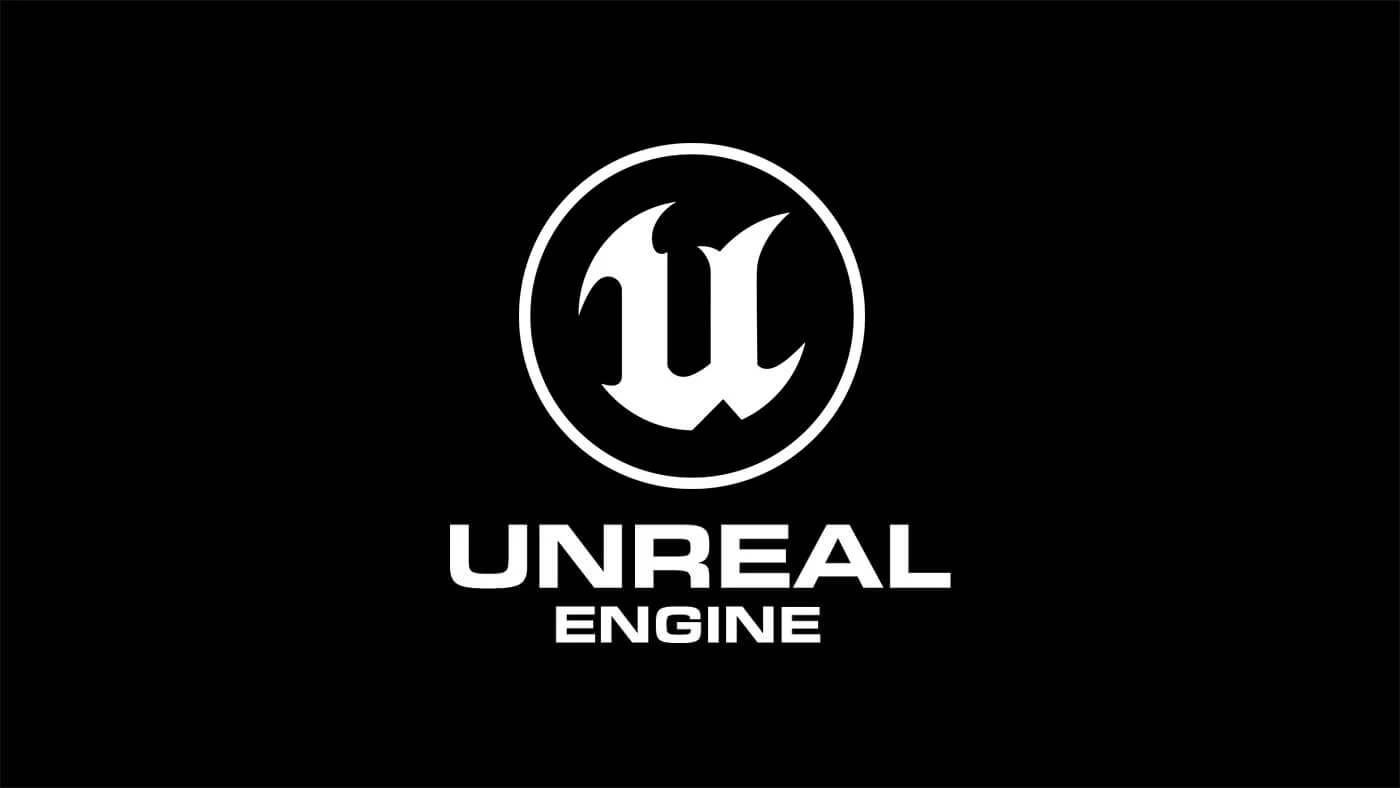

Unreal Engine is a powerful and popular game engine developed by Epic Games. It is known for its advanced features and robust tools that allow developers to create high-quality games for various platforms such as PC, consoles, and mobile devices. Unreal is considered to be one of the best game engines.
Unreal Engine has a strong focus on providing a realistic and immersive experience to the players. It includes a range of tools and features, such as real-time lighting, advanced physics simulation, and AI behavior trees, which help developers create stunning visual effects and lifelike animations.
Moreover, Unreal Engine comes with a user-friendly visual scripting tool called Blueprints, which enables developers to create game logic without the need for extensive programming knowledge. This makes it easier for game developers to iterate and test their ideas quickly, leading to faster development cycles and, ultimately, better games.
Unreal Engine also has a large and active community of developers, who contribute to the engine’s development, create and share assets, and provide support and resources to fellow developers. This makes it a great option for both beginners and experienced developers who want to create high-quality games with advanced features and tools.
GameMaker
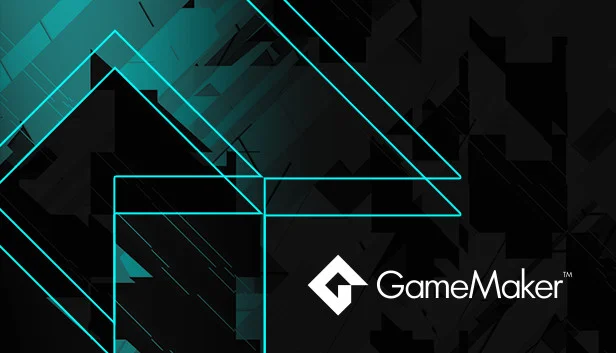

GameMaker is a popular game engine that has been around since the early 2000s. It was originally created by Mark Overmars, a professor of computer science at the University of Utrecht in the Netherlands, as a tool to help his students learn game development. The engine has since evolved into a full-fledged development platform professionals, and hobbyists use.
GameMaker offers a user-friendly drag-and-drop interface that makes it easy for beginners to get started with game development. However, it also has a powerful scripting language called GameMaker Language (GML), allowing more experienced developers to create complex games. GameMaker is one of the best game engines for low-profile game development.
One of the main advantages of GameMaker is its versatility. It can be used to create 2D and 3D games for a variety of platforms, including Windows, macOS, Linux, iOS, Android, and HTML5. It also supports a wide range of programming languages, including C++, JavaScript, and Lua.
GameMaker has a large community of users who have created a wealth of resources, including tutorials, assets, and extensions, that can be used to enhance the development process. Additionally, YoYo Games, the company behind GameMaker, offers a range of support options, including forums, documentation, and customer service.
GameMaker is a great choice for beginners and experienced developers alike who are looking for a flexible and powerful game engine. Its ease of use, versatility, and strong community make it popular among game developers.
Solar2D
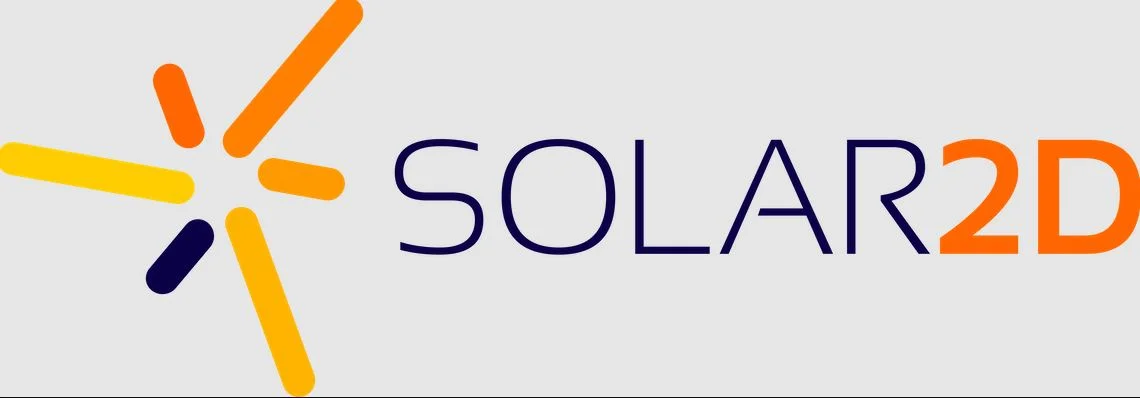

Solar2D, previously known as Corona SDK, is a free and open-source game engine that allows developers to build cross-platform games for mobile devices, desktops, and even smart TVs. The engine uses Lua programming language, which is known for its simplicity and ease of use.
Solar2D offers a number of features, such as a physics engine, animations, audio, and networking capabilities. It also has strong community support and a large collection of plugins that can enhance the functionality of the engine.
One of the main advantages of Solar2D is its simplicity and ease of use, making it a popular choice for beginner developers who want to get started with game development. Its cross-platform capabilities also make it a great option for developers who want to build games for multiple platforms without having to write separate code for each one.
However, one disadvantage of Solar2D is its limited 3D capabilities. While it is possible to create 3D games with Solar2D, the engine is primarily designed for 2D game development. Additionally, Solar2D is not as widely used as some of the other game engines on the market, which can make finding support and resources more difficult.
Defold
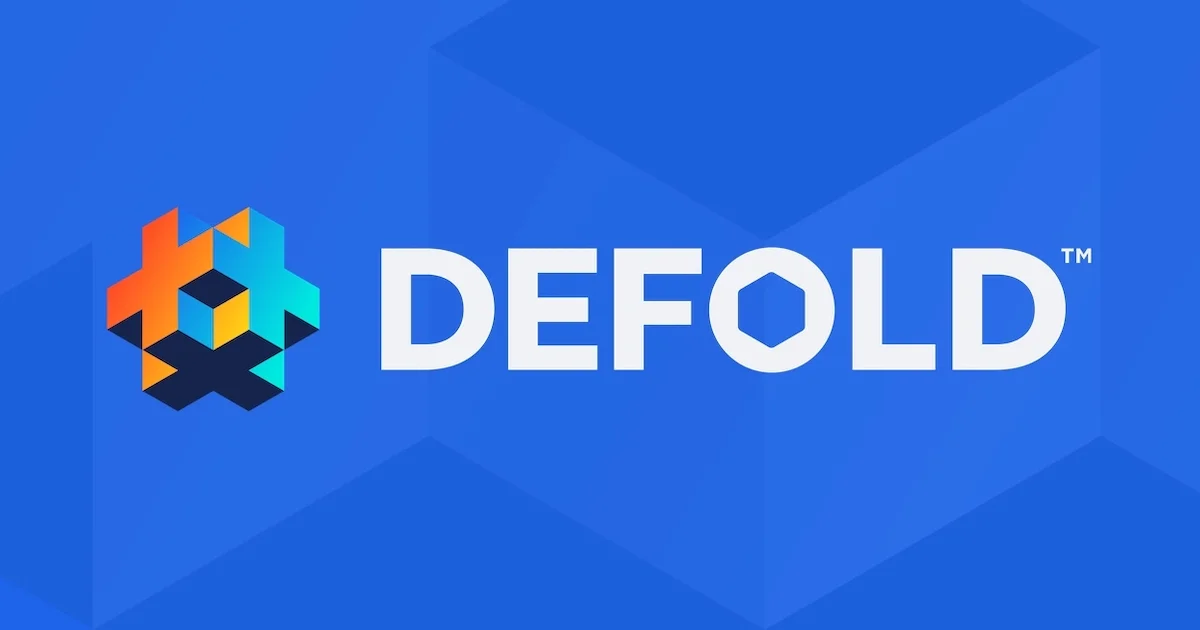

Defold is another game engine that is gaining popularity among game developers. It is a lightweight, cross-platform engine that provides easy-to-use tools and a powerful Lua-based scripting language. Defold supports a wide range of platforms, including Windows, macOS, Linux, iOS, Android, and HTML5.
One of the key advantages of Defold is its small file size, making it ideal for developing games that run on mobile devices. The engine also has a strong focus on 2D game development, making it a great option for developers looking to create 2D games quickly and easily.
Defold’s powerful visual editor allows developers to easily create game objects, add animations and sound effects, and build levels. The engine also supports live coding, allowing developers to make changes to their game code while running.
Another key advantage of Defold is its active community, which provides a wealth of resources and support for game developers. With its ease of use, cross-platform capabilities, and robust feature set, Defold is an excellent choice for indie game developers and small studios looking to create high-quality 2D games quickly and efficiently.
CryEngine
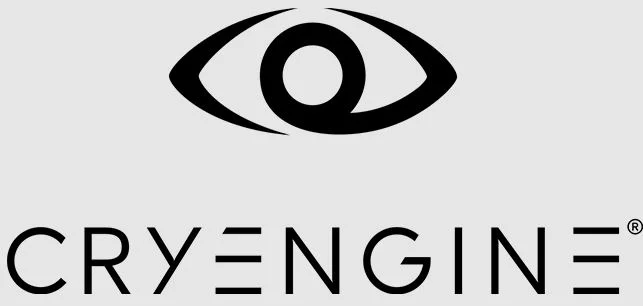

CryEngine is a game engine that is widely known for its advanced graphics rendering capabilities. Crytek created it, and it was first used in their popular game “Far Cry”. CryEngine is a powerful, highly scalable engine that can handle complex game designs.
One of the most notable features of CryEngine is its ability to create realistic and visually stunning environments. It allows for the creation of highly detailed textures, lighting, and shadows, which can all be customized to achieve the desired effect. CryEngine also supports real-time dynamic physics simulations, which can add a layer of realism to a game’s mechanics.
CryEngine’s powerful audio system is another feature that sets it apart from other game engines. It supports 3D sound, which means that audio can be positioned in the game world and adjusted in real time based on the player’s location and movements. This feature can add a layer of immersion to the gaming experience.
Another advantage of CryEngine is its scripting language, Schematyc, which allows for the creation of complex game logic and mechanics without needing to write code. This makes creating games easier for game developers with limited programming knowledge.
However, CryEngine does have a steeper learning curve than some other game engines, and it may not be the best choice for beginners. It also has higher system requirements, which can limit its accessibility to some developers.
Despite these drawbacks, CryEngine remains popular for developers who prioritize visual fidelity and realism in their games. It’s advanced rendering capabilities and powerful audio system makes it one of the best game engines for creating immersive and visually stunning gaming experiences.
Phaser
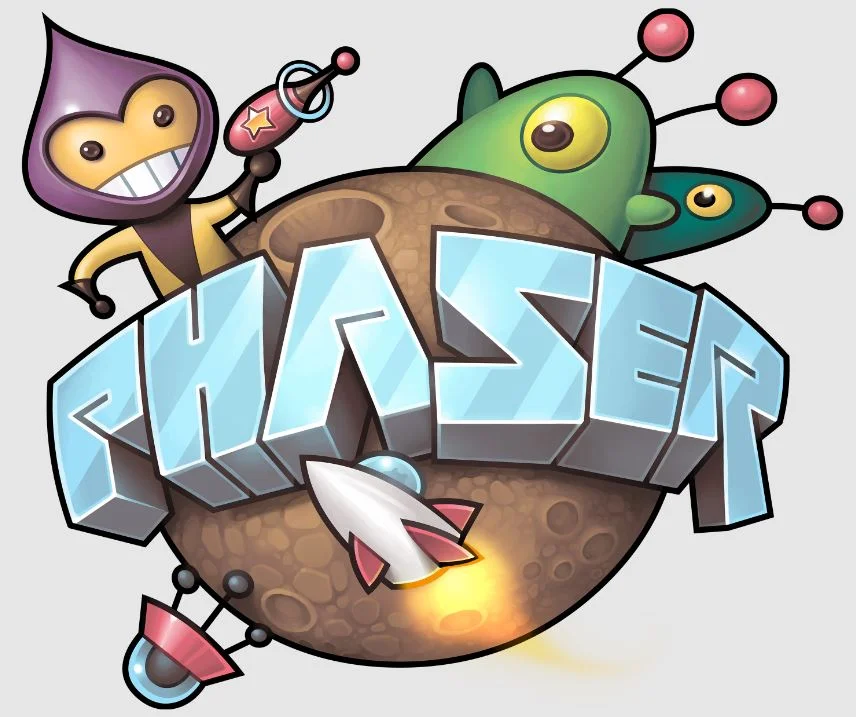

Phaser is a 2D game engine that uses JavaScript and is open-source. It is known for being easy to use and can be used for creating games that can run on various platforms like desktops and mobile devices. Phaser has a modular structure and provides a range of features like physics engines, audio management, gamepad support, and many more.
One of the advantages of using Phaser is its active and supportive community, which provides a wide range of tutorials, documentation, and examples. With Phaser, developers can create different types of games, such as platformers, puzzles, RPGs, and many more. It is suitable for both beginners and experienced developers.
One potential disadvantage of using Phaser is that it is primarily used for 2D games, so developers looking to create 3D games will need to look elsewhere. Additionally, while Phaser is easy to learn, developers may find it limiting in terms of advanced features compared to other game engines.
A phaser is a great option for those looking to create 2D games quickly and easily. Its active community and user-friendly interface make it a popular choice for indie developers and those just starting in game development.
Godot
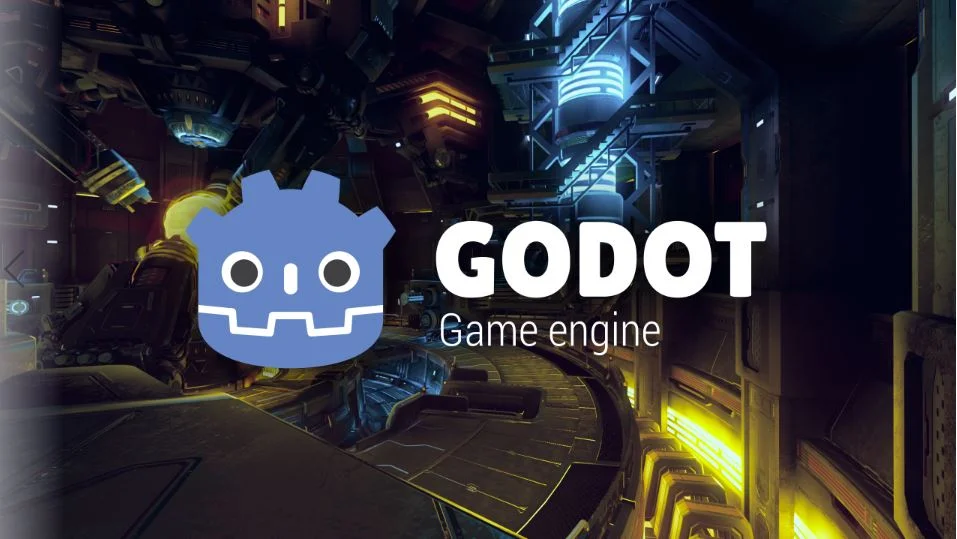

Godot is a free and open-source game engine that is gaining popularity in the game development industry. It was first released in 2014 by its developer, Juan Linietsky. The engine is designed to be lightweight and user-friendly, focusing on 2D and 3D game development.
One of the main advantages of using Godot is that it is entirely free and open-source, meaning that developers can modify the engine’s source code to suit their needs. This feature also allows developers to contribute to the engine’s development actively.
Godot’s intuitive interface makes it easy for developers to create games quickly. The engine supports a wide range of platforms, including Windows, macOS, Linux, Android, iOS, and the web. It also supports a wide range of programming languages, including C++, C#, and Python.
Godot comes with a range of features, including a built-in editor, a scene system, a physics engine, and an animation system. These features allow developers to create complex games with ease. The engine also has a dedicated scripting language called GDScript, which is similar to Python.
Godot’s large and active community provides support, tutorials, and resources to help developers get started with the engine. The community also contributes to the engine’s development, ensuring that it remains up-to-date with the latest technologies.
Godot is an excellent option for game developers who are looking for a free and open-source game engine that is easy to use and comes with a range of features. The engine’s active community and support make it a compelling choice for developers who are just starting in game development.
Armory


Armory is an open-source game engine that is based on the Blender platform. This game engine is known for its easy-to-use interface, which makes it a great option for beginners. Armory allows developers to create 2D and 3D games, as well as virtual reality and augmented reality experiences.
One of the unique features of Armory is its real-time rendering capabilities, which allow developers to see changes in their game environment immediately. Armory also has a node-based visual scripting system, making creating complex game logic without writing code easy.
In terms of platform support, Armory is compatible with Windows, macOS, Linux, and the web. It also supports exporting games to various platforms, such as Android, iOS, and HTML5.
Armory is still a relatively new game engine, but it has been gaining popularity due to its ease of use and compatibility with the Blender platform. It is also free and open-source, which makes it a great option for developers who are just starting out and want to experiment with game development without any financial investment.
AppGameKit


AppGameKit is an excellent choice for developers who want to create games quickly and efficiently. It’s known for its user-friendly scripting language, which is easy to learn and use. This engine is perfect for beginners and hobbyists looking to develop 2D and 3D games for multiple platforms. With a vast library of pre-made assets and a strong community, AppGameKit simplifies the game development process, making it a top pick for those focused on rapid prototyping and deployment.
Amazon Lumberyard (Open 3D Engine)


Amazon Lumberyard, now Open 3D Engine (O3DE), is a powerful engine with an emphasis on stunning visuals and immersive experiences. Developers looking to create visually impressive games with cutting-edge graphics and extensive cloud integration should consider Lumberyard. Its integration with Amazon Web Services (AWS) allows for scalable multiplayer experiences and serverless gameplay, making it suitable for large-scale online games. Additionally, the engine’s VR and AR capabilities make it appealing for developers exploring these emerging technologies.
RPG Maker
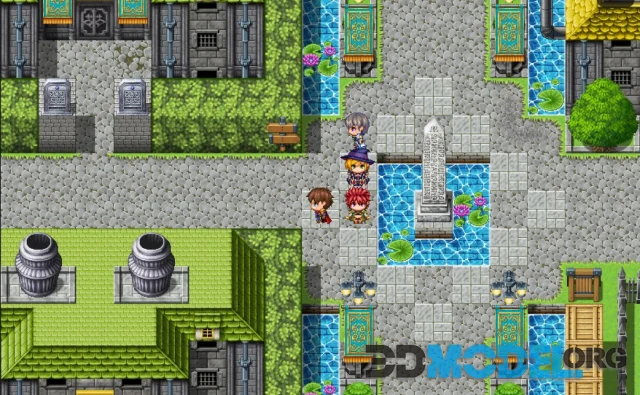

RPG Maker is a specialized engine tailored for creating 2D role-playing games (RPGs). It’s an ideal choice for individuals or small teams with a passion for storytelling and turn-based gameplay. The engine simplifies game development by providing predefined systems for character interactions, battles, and dialogues. Developers who prioritize narrative-driven experiences and don’t want to delve deeply into coding will find RPG Maker an excellent tool for bringing their game ideas to life.
LibGDX


LibGDX is an open-source, cross-platform framework for Java developers. It’s a versatile choice for those who prefer coding games from scratch, allowing for maximum control and customization. LibGDX supports 2D game development and is popular among indie developers. With its wide range of extensions and plugins, it offers flexibility for various game genres. If you’re a Java enthusiast and want to create games for desktop, mobile, and web platforms, LibGDX provides a robust framework to realize your vision.
Urho3D
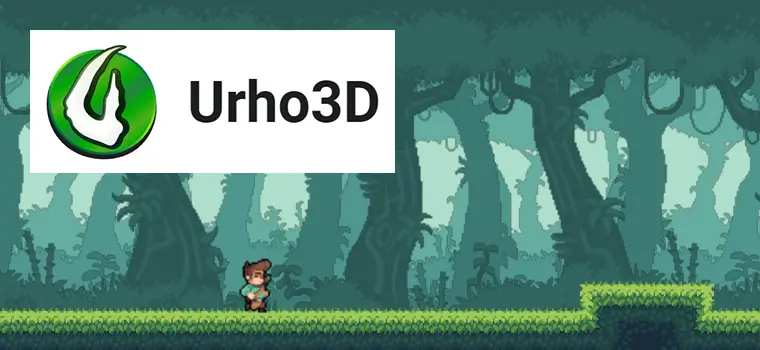

Urho3D is a lesser-known but powerful open-source engine suitable for developers seeking a C++-based solution. It excels in creating 3D games and simulations with a focus on realism and performance. Urho3D’s flexible architecture and component-based system provide extensive control over game logic and rendering. If you’re comfortable with C++ and want to develop high-performance 3D games, simulations, or even serious applications, Urho3D is a solid choice.
What is the Best Free Engine?
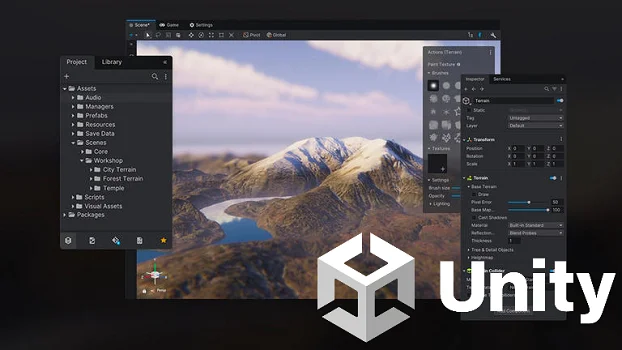

The best free game engine often depends on the specific needs and preferences of the game developer. However, one of the most popular and highly regarded free game engines is “Unity.” Unity provides a robust set of tools and features that make it accessible to both beginners and experienced developers. It supports multiple platforms and has a large community that offers extensive documentation, tutorials, and support.
Another notable free game engine is “Unreal Engine” by Epic Games. Unreal Engine is known for its stunning graphics and visual capabilities, making it a top choice for creating high-quality and visually impressive games. It also offers a wide range of features and tools, and its Blueprint visual scripting system simplifies game development for those without strong coding skills.
Both Unity and Unreal Engine have been used to create successful and critically acclaimed games, and they continue to evolve with regular updates and improvements. Ultimately, the choice between the two will depend on the specific requirements of the project and the developer’s familiarity and comfort with the respective engines.
Best Engines for 2D Games
When it comes to developing 2D games, choosing the right game engine can significantly impact the success and efficiency of your project. Each engine offers its own set of features, tools, and capabilities tailored to different needs and preferences. Let’s explore some of the best engines for 2D game development, highlighting their key strengths and suitability for various types of projects.
Godot Engine
Known for its flexibility, open-source nature, and powerful scripting language, Godot Engine is a popular choice among indie developers and small studios. It offers a comprehensive set of tools for both 2D and 3D game development, along with a supportive community and extensive documentation.
GameMaker Studio 2
GameMaker Studio 2 is renowned for its user-friendly interface, intuitive drag-and-drop functionality, and robust programming language (GML). It’s ideal for beginners and experienced developers alike, enabling rapid prototyping and easy iteration to bring your 2D game ideas to life.
Unity
While Unity is often associated with 3D game development, it also provides robust support for creating high-quality 2D games. With its vast asset store, advanced physics engine, and extensive cross-platform compatibility, Unity offers unparalleled versatility and scalability for 2D game projects of all sizes.
Corona
Designed for fast and efficient 2D game development, Corona SDK boasts a lightweight footprint, rapid prototyping capabilities, and real-time simulation features. It’s particularly well-suited for mobile game development, offering seamless integration with popular platforms like iOS and Android.
RPG Maker
As its name suggests, RPG Maker specializes in creating role-playing games (RPGs) with rich storytelling elements and turn-based combat mechanics. With its extensive library of pre-made assets and intuitive event-based system, RPG Maker empowers developers to create immersive 2D RPG experiences with ease.
libGDX
libGDX is a cross-platform game development framework built on top of Java, offering high performance, flexibility, and scalability for 2D game projects. It provides powerful tools for graphics rendering, input handling, and audio playback, making it a popular choice among Java developers and enthusiasts.
Ren’py
Ren’py is a visual novel engine designed for creating interactive storytelling experiences with branching narratives, choices, and character-driven plots. It’s widely used by indie developers and hobbyists to create narrative-driven 2D games with unique art styles and engaging storytelling mechanics.
Is Unreal Engine suitable for 2D games?
Yes, Unreal Engine is suitable for 2D games, although it’s more commonly associated with 3D game development. While Unreal Engine’s primary focus is on 3D graphics and features, it does offer robust support for 2D game development as well. Developers can leverage Unreal Engine’s powerful tools, visual scripting system (Blueprints), and extensive asset library to create high-quality 2D games with stunning visuals and engaging gameplay mechanics. Additionally, Unreal Engine provides features like Paper 2D, which is a dedicated suite of tools and workflows specifically designed for 2D game development, making it a viable option for developers looking to create 2D games with the engine’s advanced capabilities.
The Best Game Engines for Mobile
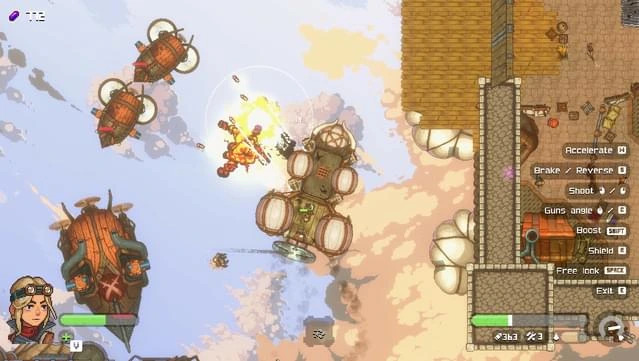

The best game engines for mobile game development cater to various needs and skill levels. Here are some popular choices:
- Unity: One of the most versatile game engines, Unity supports both 2D and 3D game development and offers cross-platform compatibility, making it ideal for mobile games on iOS and Android.
- Unreal Engine: Known for its stunning graphics and visual effects, Unreal Engine is suitable for creating high-quality and visually impressive mobile games.
- Godot: An open-source game engine that is gaining popularity, Godot provides a user-friendly interface and supports both 2D and 3D game development.
- Cocos2d-x: A powerful and widely used open-source engine specifically designed for 2D mobile game development.
- Phaser: Ideal for web-based mobile games, Phaser is an HTML5 game framework that supports both desktop and mobile platforms.
- GameMaker: A beginner-friendly engine that allows developers to create mobile games with little to no coding experience.
- Corona SDK: Suitable for 2D mobile game development, Corona SDK uses the Lua programming language and offers easy cross-platform deployment.
When choosing a mobile game engine, consider factors such as ease of use, performance, supported platforms, available resources, and community support. The best engine will depend on the specific requirements and scope of your mobile game project.
How to Choose the Right Game Engine
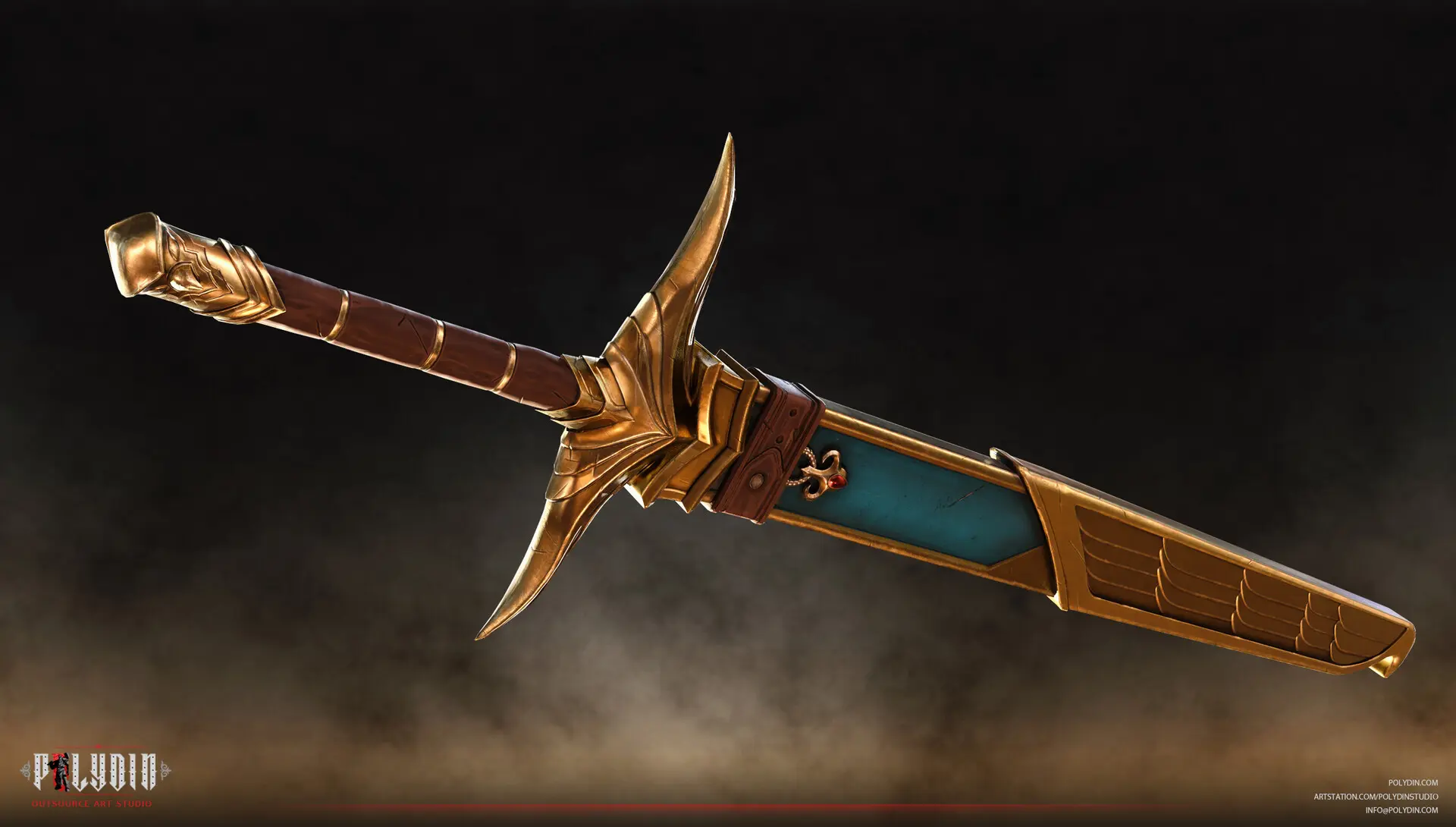

To choose the right game engine, consider your game’s requirements, evaluate engine features and capabilities, assess your team’s skills, check community and support, review licensing and cost, prioritize performance and optimization, ensure cross-platform support, test prototyping and workflow, study successful games developed with the engine, and try before committing.

